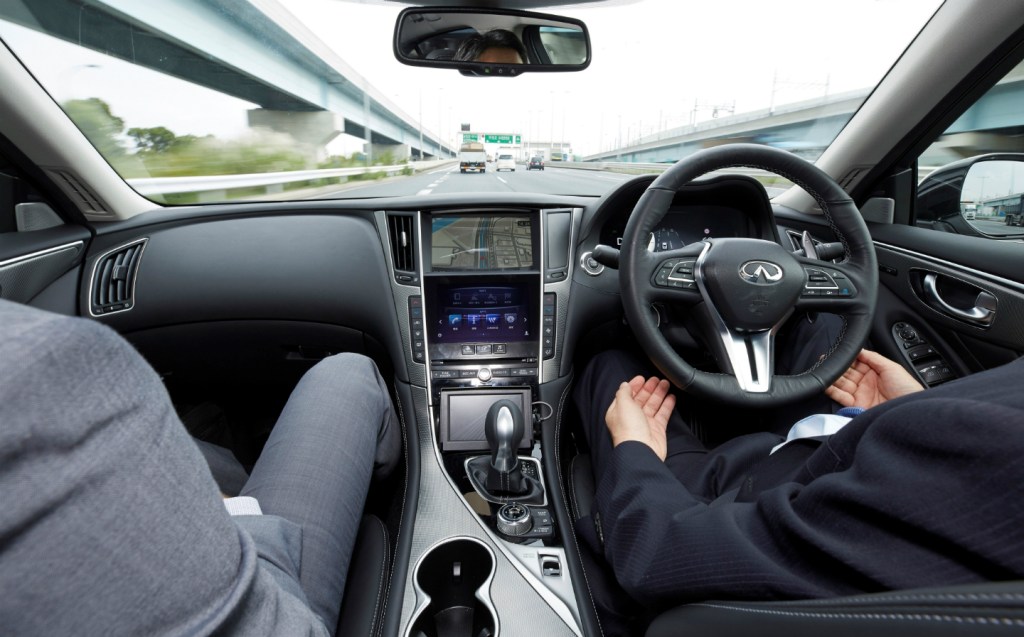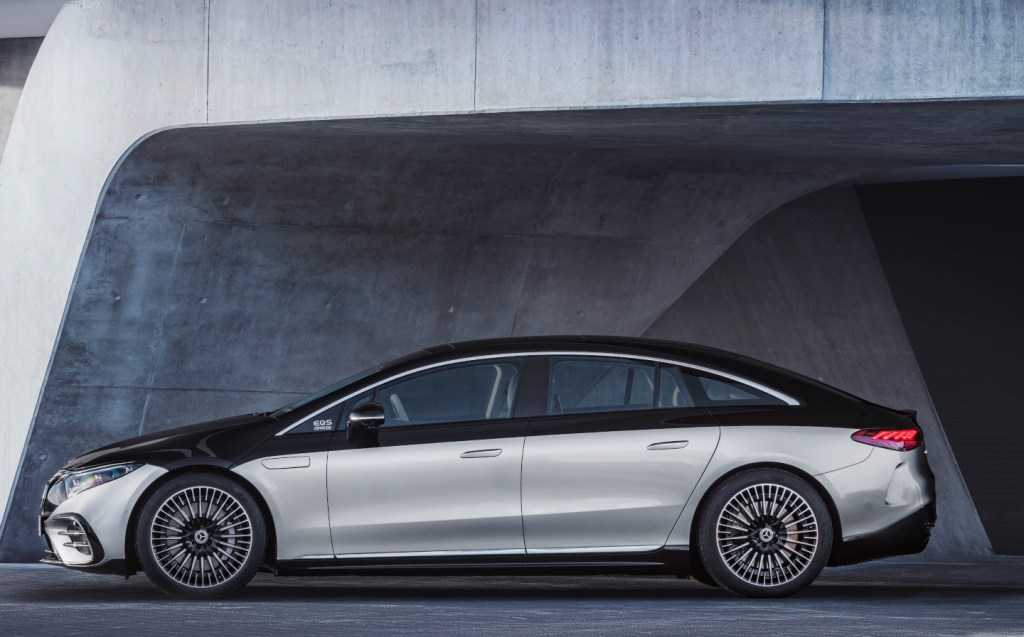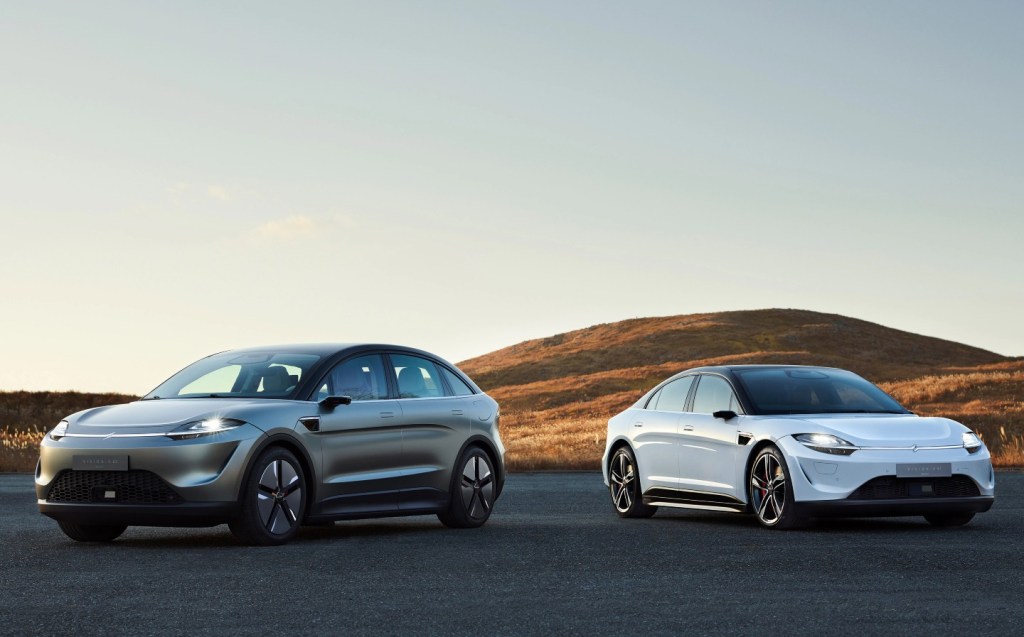Apple scales back autonomous car ambitions with first model delayed to 2026
Full autonomy takes a bite out of Apple
Technology giant Apple has significantly scaled back its ambitions to unveil a fully-autonomous electric car by 2025.
Apple’s Project Titan (as its car programme is dubbed internally) has been facing an uncertain future for some time as engineers unsuccessfully grappled with the task of creating a fully self-driving vehicle, according to Bloomberg.
Apple’s vision for its car was similar in its form to the MPV-like Lifestyle Vehicle from the American automotive start-up Canoo (the head of design on the project is ex-Canoo CEO, Ulrich Kranz), but without pedals or a steering wheel and featuring seating with the occupants facing each other.
It is understood that the company, realising that such technology is not currently feasible, has since totally ‘realigned’ its goals in this regard and is now aiming to reveal a much more conventional vehicle in 2026 that will include both a steering wheel and pedals.
While the revised Apple car is expected to feature some level of autonomous capability, Bloomberg reports that sources close to the project have said that this technology may only achieve Level 3 capability under the Society of Automotive Engineers self-driving framework.
What are the different levels of self-driving vehicle?
With Level 0 equating to no driver-assistance features and Level 5 referring to full autonomy, the Apple car may only achieve Level 3 autonomy, a level of self-driving capability that already exists in a basic form on some production cars.

Level 3 autonomy means that drivers may take their hands off the wheel and undertake other tasks, such as reading a book, while the car assumes full control of all driving functions. However, this is only in specific conditions, such as in low-speed traffic on motorways, and the person in the driver’s seat must be able to retake control within a few seconds of an alert from the car. It also requires regulatory approval in specific markets.
The news is essentially an admission from Apple sources that achieving Level 5 autonomy is currently far beyond the abilities of one of the largest and richest technology companies in the world.
Apple’s car project has been shrouded in a layer of secrecy since its inception around a decade ago and in the course of its existence has faced a significant churn of personnel.
At present, the programme is being headed by Kevin Lynch, also the lead on the Apple Watch and health software projects who was brought onboard in 2021 to streamline the car programme.
Initially, Lynch had instructed Apple’s Special Projects Group (as the team working on the car is known internally) to push ahead with plans to develop and unveil a fully-autonomous vehicle by 2025. However, facing the enormity of that challenge the latest realignment of the project is seen as an effort to finally bring a product to market, though with lowered expectations for autonomy.
Unlike Tesla, which recently announced that all of its advanced driver-assistance and autonomous driving functions will from now be based on cameras alone, Apple is following most manufacturers pursuing higher-level autonomous capability by incorporating an array of cameras, radar, lidar and ultrasonic sensors.
Underpinning the Apple car’s computational abilities is said to be an advanced computer system codenamed Denali (named after the tallest mountain in the United States) with a processor supposedly equal to four of Apple’s high-end Mac chips.
As to whether any Apple car does end up featuring such a powerful system remains to be seen, with the possibility that the firm may also scale this back to reduce both the cost of the project (currently around $1bn annually) and the eventual cost of the vehicle.
Apple had originally been expected to market its car for around $120,000 (about £98,000 at current rates), but given the less ambitious scope of the revised model, Bloomberg’s sources suggest that a figure closer to $100,000 (£82,000) is more likely, potentially making it a rival for the likes of the Tesla Model S, Mercedes EQS (below) and the 2025 Polestar 5.

Given the project’s recent turmoil, Apple hasn’t yet settled on a design for its vehicle but hopes to have it finalised by next year. It also plans to develop its specifications and features by 2024 and to undertake testing in 2025.
It isn’t known yet whether Apple will develop its own dedicated electric vehicle platform, whether it will license another car-maker’s platform or choose off-the-shelf architecture from a contract manufacturer such as Austrian firm Magna-Steyr, as had been rumoured about Sony, another technology firm supposedly pursuing car-making ambitions.

Apple had reportedly been in negotiations with Volkswagen about the use of its MEB platform (the same underpinnings used on VW’s ID.3 and ID.4 models) some time back.
Though approached, Apple has refused to comment on the most recent reports surrounding its car project.
The company’s shares fell by 2% on Tuesday (December 7) in the wake of the news.
Related articles
- After reading the latest on the Apple car, you may want to read about ex-Apple designer Sir Jony Ive designing an electric Ferrari
- Check out all the car makers’ electric vehicle plans
- And you might be interested that Apple Carplay and Android Auto could be worse for reaction times than cannabis or alcohol, according to a study last year
Latest articles
- Best five large SUVs to buy in 2025
- Extended test: Genesis Electrified GV70 2024 review
- Best five sports cars to buy in 2025
- Best five mid-sized family cars to buy in 2025
- How to store a classic car for winter
- Vauxhall Frontera 2024 review: Old badge resurrected for budget Dacia Jogger rival
- Car finance scandal: Barclays loses challenge to overturn recompense ruling
- Kia EV3 2025 review: The new leader of affordable electric crossovers, with up to 375 miles per charge
- Renault 5 Turbo returns with in-wheel electric motors and supercar performance














